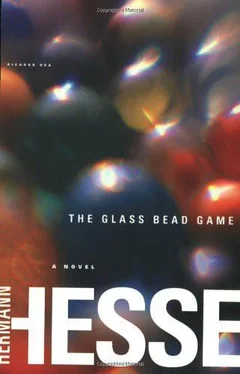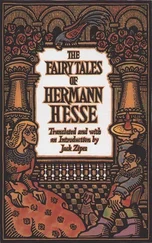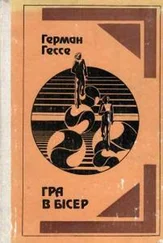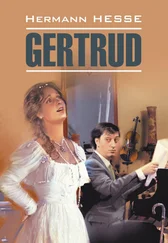Hermann Hesse
The Glass Bead Game
Translated from the German
Das Glasperlenspiel
by Richard and Clara Winston
Foreword by Theodore Ziolkowski 1969 by
Holt, Rinehart and Winston, Inc.
Foreword
By Theodore Ziolkowski
THE GLASS BEAD GAME , Hermann Hesse’s last major work, appeared in Switzerland in 1943. When Thomas Mann, then living in California, received the two volumes of that first edition, he was dumbfounded by the conspicuous parallels between Hesse’s “Tentative Sketch of the Life of Magister Ludi Joseph Knecht” and the novel that he himself was writing, Doctor Faustus (1947). For all their differences in mood, style and theme, both works employ a similar fiction: a pleasant though somewhat pompous narrator recounts, with a sympathy matched only by his pedantry, the life of a man whom he loves and admires. Since in each case the narrator is incapable of fully comprehending the problematic genius of his biographical subject, an ironic tension is produced between the limited perspective of the narrator and the fuller vision that he unwittingly conveys to the reader. Both authors were obsessed, in addition, with the self-destructive course of modern civilization, and this concern pervades both novels. But Mann’s view is more immediate. His narrator, Serenus Zeitblom, can see and hear the exploding bombs of World War Two as he writes, and the spectacular career of the composer Adrian Leverkühn parallels with ominous precision the history of Germany from the declining Empire through the shortlived brilliance of the Weimar Republic to the raging madness of National Socialism. In Hesse’s novel, in contrast, that same period is described with the detachment of a narrator looking back at the “Age of the Feuilleton” from a vantage point in the distant future. Unlike Mann’s Leverkühn, Hesse’s Joseph Knecht succeeds in analyzing the dangers of an excessive aestheticism and acts to avert the catastrophe of intellectual irresponsibility. In both novels, finally, the authors slyly weave their experience of our culture into a pastiche of hidden quotations and characters à clef.
Thomas Mann, immediately sensing that the serious theme of Hesse’s novel was enclosed within “a cunning artistic joke,” recognized the source of its humor in “the parody of biography and the grave scholarly attitude.” But people won’t dare to laugh, he wrote Hesse. “And you will be secretly annoyed at their dead-earnest respect.” Hesse was pleased that his friend had put a finger on the comic aspect of the novel, but Mann’s prediction was correct. In the quarter-century since its publication, The Glass Bead Game has enjoyed the adulation customarily awarded to literary “classics.” Indeed, largely on its merits Hesse received in 1946 the Nobel Prize for which Mann, among others, had repeatedly nominated him. Hesse’s opus magnum was one of the first works by a distinguished emigré to be published in Germany after the war, and it has been regularly reprinted there since 1946. The book was dutifully translated into English, Swedish, French, Spanish, Italian, and other languages. But the novel, whose title has supplied us with one of those imagistically suggestive catchwords for our age, like “the Waste Land” or “the Magic Mountain,” has suffered the fate of many classics — it is less frequently read than cited, more often studied than appreciated. In Germany many readers, blandly ignoring the implicit criticism in the novel, tended to see in Hesse’s cultural province nothing but a welcome Utopian escape from the harsh postwar realities. More discerning European critics have usually been so preoccupied with the fashionably grave implications that they have neither laughed at its humor nor smiled at its ironies.
In part these one-sided readings are understandable, for the humor is often hidden in private jokes of the sort to which Hesse became increasingly partial in his later years. The games begin on the title-page, for the motto attributed to “Albertus Secundus” is actually fictitious. Hesse wrote the motto himself and had it translated into Latin by two former schoolmates, who are cited in Latin abbreviation as the editors: Franz Schall (“noise” or Clangor ) and Feinhals (“slender neck” or Collo fino ). The book is full of this “onomastic comedy” that appealed to Thomas Mann, also a master of the art. Thus Carlo Ferromonte is an italianized form of the name of the author’s nephew, Karl Isenberg, who assisted Hesse with the music history that is interwoven with the history of the Glass Bead Game. The “inventor” of the Game, Bastian Perrot of Calw, gets his name from Heinrich Perrot, the owner of a machine shop where Hesse once worked for a year after he dropped out of school. The figure of Thomas von der Trave is a detailed and easily recognizable portrait of Thomas Mann, who was born in the town of Lübeck on the river Trave. In the person of Fritz Tegularius, Hesse has given us his interpretation of the brilliant but unbalanced character of Friedrich Nietzsche. And Tegularius’ spiritual opponent in the novel, Father Jacobus, borrows some of his words and most of his ideas from Nietzsche’s antagonist, the historian Jakob Burckhardt. The reader who fails to catch these sometimes obscure references is not only missing much of the fun of the book, he is also unaware of its implications in the realm of cultural history and criticism.
The reception of The Glass Bead Game in this country has been affected by other factors as well. The book has been available since 1949 under the misleading title Magister Ludi . But if it failed to make an impact, this was due equally to the translation by Mervyn Savill, which fails to bring out its irony, and to the fluctuations of Hesse’s reputation in the United States. Although Hesse’s stature was recognized in Europe (where he was praised by such admirers as Thomas Mann, André Gide, and T.S. Eliot) for some thirty years before he received the Nobel Prize, Time magazine noted in 1949 that his works were still virtually unknown here. His eightieth birthday, widely celebrated abroad, passed unnoticed in the United States in 1957. And when Hesse died in 1962, a New York Times obituary stated that he was “largely unapproachable” for American readers. This neglect is due in part to the introspective, lyrical quality of his novels, which depart radically from the more realistic tradition that dominated American fiction between the world wars. But another circumstance is probably more important in accounting for the lack of interest in his works for a good fifteen years after he received the Nobel Prize. Hesse’s novels fictionalize the admonitions of an outsider who urges us to question accepted values, to rebel against the system, to challenge conventional “reality” in the light of higher ideals. For almost two decades after World War Two our society was characterized largely by the button-down-collar mentality of a silent generation whose goal it was to become a part of the establishment and to reap its benefits as rapidly as possible. Such ages have little use for critics of the system and prophets of the ideal.
But times have changed, and Hesse has suddenly become — to use a current shibboleth — relevant. But relevance resides in the mind of the perceiver, and the under-thirty generation that has embraced Hesse in the sixties as an underground classic is better known for its rebelliousness than for its sense of irony. As a result, the Hesse cult in the United States has revolved primarily around such painfully humorless works as Demian and Siddhartha, in which readers have discovered an anticipation of their infatuation with Eastern mysticism, pacifism, the search for personal values, and revolt against the establishment. Those who have gone on to Steppenwolf have greeted it as a psychedelic orgy of sex, drugs, and jazz, but have conveniently overlooked the ironic attitude through which those superficial effects are put back into perspective by the author. It was partly as a reaction against such self-indulgent interpretations, which he encountered as much as forty years ago, that Hesse undertook The Glass Bead Game.
Читать дальше












